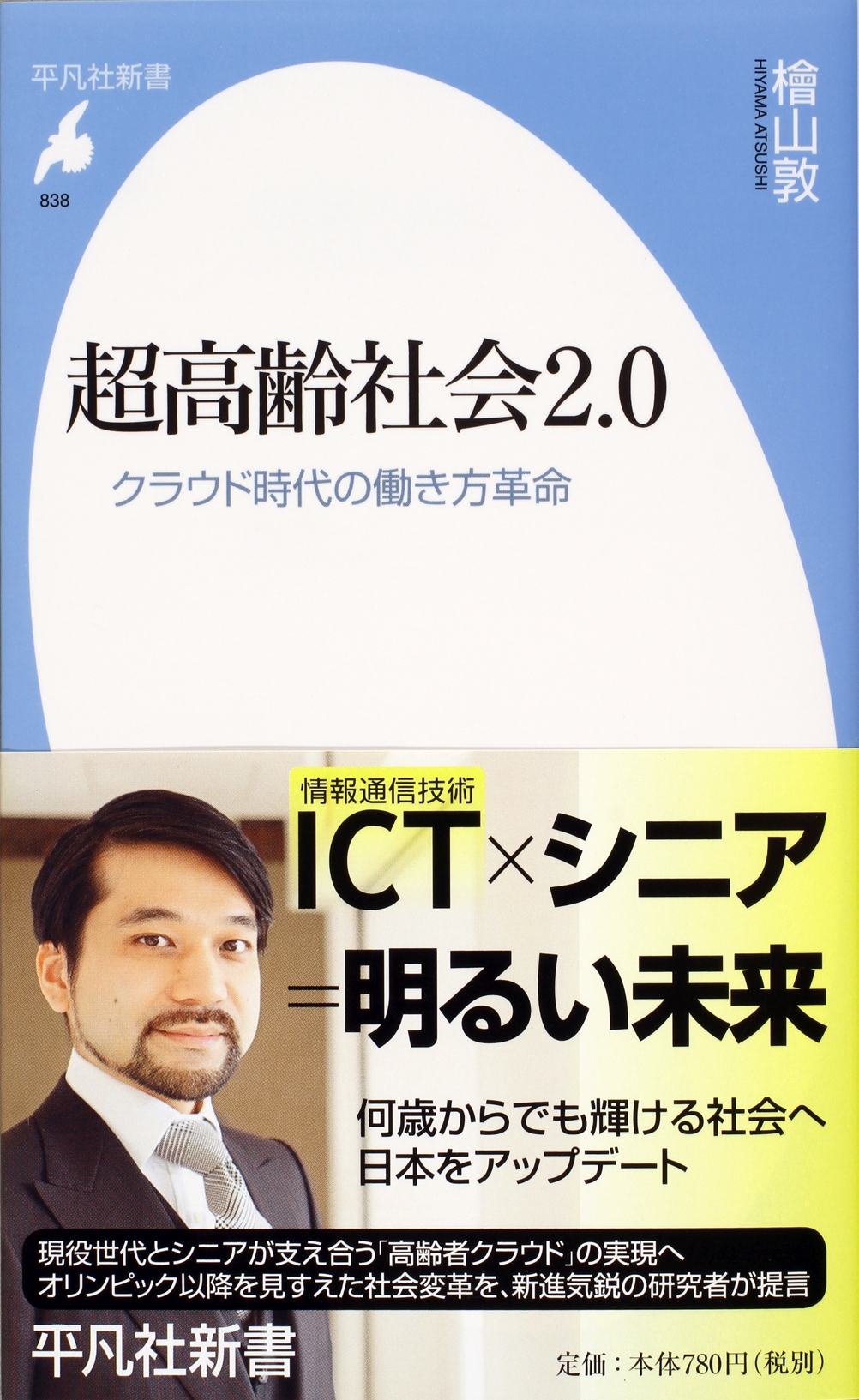
Title
Heibonsha Shinsho Choukourei-Shakai 2.0 (Hyper-aged Society 2.0 - Work Style Revolution in the Cloud Era)
Size
224 pages, paperback pocket edition
Language
Japanese
Released
July, 2017
ISBN
9784582858389
Published by
Heibonsha
Book Info
See Book Availability at Library
Japanese Page
From around the year 2030, Japan’s population will begin to decline by one million people each year, while the country’s aging population will only continue to grow. By 2055, the aging rate of the population will surpass forty percent. If the current social structure is maintained, there will come a time when nearly every working-age individual will be forced to support a senior citizen. But are Japan’s seniors really incapable of supporting the society? On taking a closer look, we will find that almost ninety percent of people over the age of 65 are active seniors who have the ability to lead independent lives. It can therefore be said that the fundamental problem of Japan’s aging population lies in the fact that the country has not considered any opportunities for seniors to be active after their mandatory retirement. Using information and communications technologies (ICT) to create opportunities for seniors to play an active role in society may lead to innovations that could virtually reverse the inverted population pyramid, revealing a stable social structure in which a large number of seniors support a small number of young people. With this consideration, I began researching how to connect seniors to the seemingly distant world of ICT.
ICT can help us overcome the tasks that are no longer possible due to old age. ICT can extend our opportunities to connect with others in our old age, a period when social connections are important to maintain our mental and physical health. In this book, I propose a mosaic-type work system that combines the abilities of each individual, and summarize the history of researching, developing, and demonstrating the technologies for putting this mosaic into practice. If the way people live in their old age changes, the way seniors are perceived will also change. This will spur further changes that will lighten the load on the shoulders of the working-age population and accelerate the revolution in the way we work. I wrote this book with the intention of illustrating a blueprint for a more sustainable society after the Tokyo Olympics. From the time of its publication, the social application of my research has begun to gradually spread. More attention is being paid to senior employment. However, although the Olympics has come and gone, aren’t we still trying to stretch out the conventional idea of a lifetime to cover the new decades of life gained since Japan’s high growth period?
Through this book, I wanted to say something to everyone about to enter higher education (actually, it doesn’t matter how old you are). I wanted to say that there is no need to fit yourself into the existing mold of society. Society is a human construct and hence will evolve in the direction that each of us envisions. The time you spend at university is also the time to lay a groundwork for thinking about a better society and learn how to engage with the society that exists today while accounting for differences of opinion. The structure of society does not change easily. However, a new form of society can be seen at the intersection of the legal system, technology, and philosophy.
(Written by HIYAMA Atsushi, Project Associate Professor, Research Center for Advanced Science and Technology / 2021)
Related Info
Turning aging society on its head - Web app helps seniors find jobs, stay connected (The University of Tokyo September 14, 2018)
https://www.u-tokyo.ac.jp/focus/en/features/z0508_00007.html
Seminars:
Webinar: 2020 Aging Technologies Perspectives of Japan, China and Singapore (ACCESS Health International Nov 25, 2020)
https://accessh.org/event/webinar-2020-aging-technologies-perspectives-of-japan-china-and-singapore-2/
https://www.modernaging-jp.com/webinar
UCLIC Research Seminar 3rd September: Atsushi Hiyama (University of Tokyo) on "Geron-Informatics" (UCLIC-UCL Interaction Centre, United Kingdom Sept. 3, 2018)
https://uclic.ucl.ac.uk/news-events-seminars/uclic-research-seminar-3rd-september-atsushi-hiyama-university-of-tokyo-on-geron-informatics



 Find a book
Find a book


 eBook
eBook